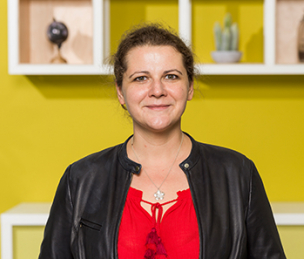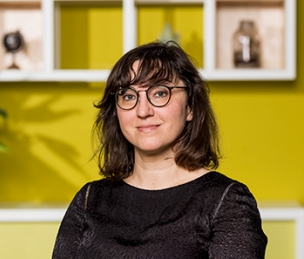
Dr. Natalia Levshina
Postdoctoral researcher
Profile page
I’m a language scientist working in the consortium Language in Interaction funded by the Dutch Research Council (NWO). Before joining the MPI, I worked in the ERC-funded project Grammatical Universals, headed by Martin Haspelmath at Leipzig University. I obtained my PhD in Linguistics at the University of Leuven in 2011 and my habilitation (university-level teaching) qualification in General and English Linguistics in Leipzig in 2019.
My big theoretical interest is communicative efficiency and how it manifests itself in language structure and use. For an example of efficient language use, check my blog post on different shortenings of “coronavirus” in different languages of the world. Now at the MPI I’m working on experiments that involve artificial language learning and which help us to understand the universal cognitive and communicative biases of language users. I also enjoy using and teaching R, statistics and corpus methods, and writing popular blog posts about language (see MPI TalkLing and Het Talige Brein).
Gender equality and equal opportunities are extremely important to me. Since 2021, I’ve been a Deputy Equality Officer at the MPI.

Dr. Maria Spychalska
Postdoctoral researcher
Profile page
I am a psycholinguist and a philosopher, working mainly in the area of experimental (neuro)pragmatics. Before joining the Language in Interaction Consortium I worked at the Department of German Linguistics of the University of Cologne, leading an independent research project (funded by the German Research Foundation, DFG) as part of the Experimental Pragmatics Priority Programme XPRAG.de. I also held a replacement professorship position in Psycho-Neurolinguistics, at the Cognitive Science Department, University of Osnabruck.
I did my PhD at the Department of Philosophy, Ruhr University of Bochum. Prior to that, I studied both philosophy (at the University of Warsaw) and logic (at the Institute for Logic, Language and Computation, University of Amsterdam).
I work at the interface between psycholinguistics, philosophy of language and experimental pragmatics. I am particularly interested in the processing of pragmatic aspects of meaning, communication in contexts with partial information, as well as in the interface between pragmatic inferencing and logical reasoning in language. Using EEG, I investigate neural mechanisms underlying pragmatic and semantic inferencing. I have worked on quantifiers, scalar implicatures, temporal order inferences and negation.

Dr. Francesca Carota
Postdoctoral researcher
Profile page
I am a neuro-linguist with an initial background in historical linguistics, dialectology, and diachronic language typology, and studies in computational and mathematical linguistics applied to linguistic structures across ancient and modern languages (from morphonological analysis of Sanskrit and Hindi and related sandhi as compared to Finnish, to the coherence of discourse and dialogue in English and Italian). I have been trained in France (CNRS) and the UK (MRC-CBU) in cognitive neuroimaging methods (fMRI, EEG/MEG) to study psycholinguistic phenomena from a neuro-scientific perspective. After my PhD at the University of Pisa, I have had the chance to conduct psycholinguistic and neurolinguistic research at the MRC-CBU, the University of Cambridge, UK, at Freie Universität and Humboldt Universität zu Berlin, before joining the Neural Dynamics of Speech Production group with Peter Indefrey and the Neurobiology of Language group with Peter Hagoort at MPI and DCCN.
I am broadly interested in the distribution and processing of linguistic structure (e.g., morphosyntax) and semantic/pragmatic information across different languages (e.g., Italian, Arabic, English, French, etc.), investigating the underlying language-specific (vs. universal) neural mechanisms. I study how meaning is mapped onto linguistic units at different levels of granularity (from phonology to discourse) in both language comprehension and production, and in how it is encoded in modality-dependent and -independent neural systems. Part of my research focuses on conceptual structure in children. Within the Language and Interaction Consortium, I study the cross-linguistic processing of information structure, in its linguistic manifestations at the interface between intonation, syntax and discourse.
I have addressed these questions by employing a combination of behavioural, corpus-based, computational and neuroimaging methods (fMRI, EEG/MEG; both univariate and multivariate RSA approaches).
I also have fun writing blog posts about language and the brain (check please check my blog posts at the MPI TalkLing and Het Talige Brein, and illustrating them!

